Journalists feel that they cannot rely on the support of the police and the protection of the legal system.
Attacks on journalists and hindrances to their work over the past weekend during the SNS gathering in Niš have further deteriorated the safety of journalists. It has become a trend to attack media representatives while the police watch and do not react, and the prosecution is unable to influence the police to do their job. We feel abandoned and believe we cannot rely on the protection of the legal system – concluded representatives of the media and media associations at the meeting of the Permanent Working Group for the Safety of Journalists in Niš with representatives of the prosecution and police, held in cooperation with ANEM and the OSCE Mission in Serbia.

“We came to Niš today to support the female and male journalists who were physically attacked, insulted, and detained just a few days ago at a rally of the ruling party. We want to acknowledge the remarkable journalistic solidarity shown by the female and male journalists of the RTS newsroom when the president called them imbeciles after they published a report that met all professional standards. We are here to highlight the very alarming trends regarding the escalation of unpunished attacks on journalists that have occurred over the past six months. The attackers are better protected than the journalists themselves,” said Veran Matić at the beginning of the meeting.
Attacks and threats against journalists in Serbia are becoming increasingly pronounced and intense, and official data indicates that relevant institutions are resolving fewer and fewer cases.
“The causes of attacks in person and in the digital realm lie in the crude and frequent public targeting and demonization of certain journalists and newsrooms by holders of executive power and key politicians, which strongly influences the spiral of violence leading through lies and insults in pro-government tabloid media and threats on social media directed at journalists. This trend of impunity for threats and physical attacks can lead to nothing but increasingly serious consequences,” emphasized Veran Matić, President of the ANEM Board and member of the Permanent Working Group for the Safety of Journalists.

During the meeting, specific cases of attacks on journalists from Južne vesti and Nova TV, as well as the detention of a journalist from SBS Radio during the gathering in Niš last weekend, were discussed.
“We tried to avoid the gathering since we did not have accreditations, as only certain journalists received them. We knew we were not welcome. Early in the morning, we recorded the preparations, and when the national anthem started playing around 6 PM and the flag was being raised, four young men began to push me and the cameraman. They yelled at us that we were Ustaše, urging us to go back to Zagreb. Police officers nearby witnessed all of this, and absolutely no one approached those who were yelling at and pushing us. I wanted to call the police on my phone when I saw they would not help us, but the noise prevented me from hearing if anyone responded. Then I started waving at the police, and one officer approached and took us to safety. We recorded everything; we know who those four men are, and to this day, nothing has been done, as far as we know, to locate and arrest the perpetrators,” recounted Ivana Marković, a journalist from TV Nova.
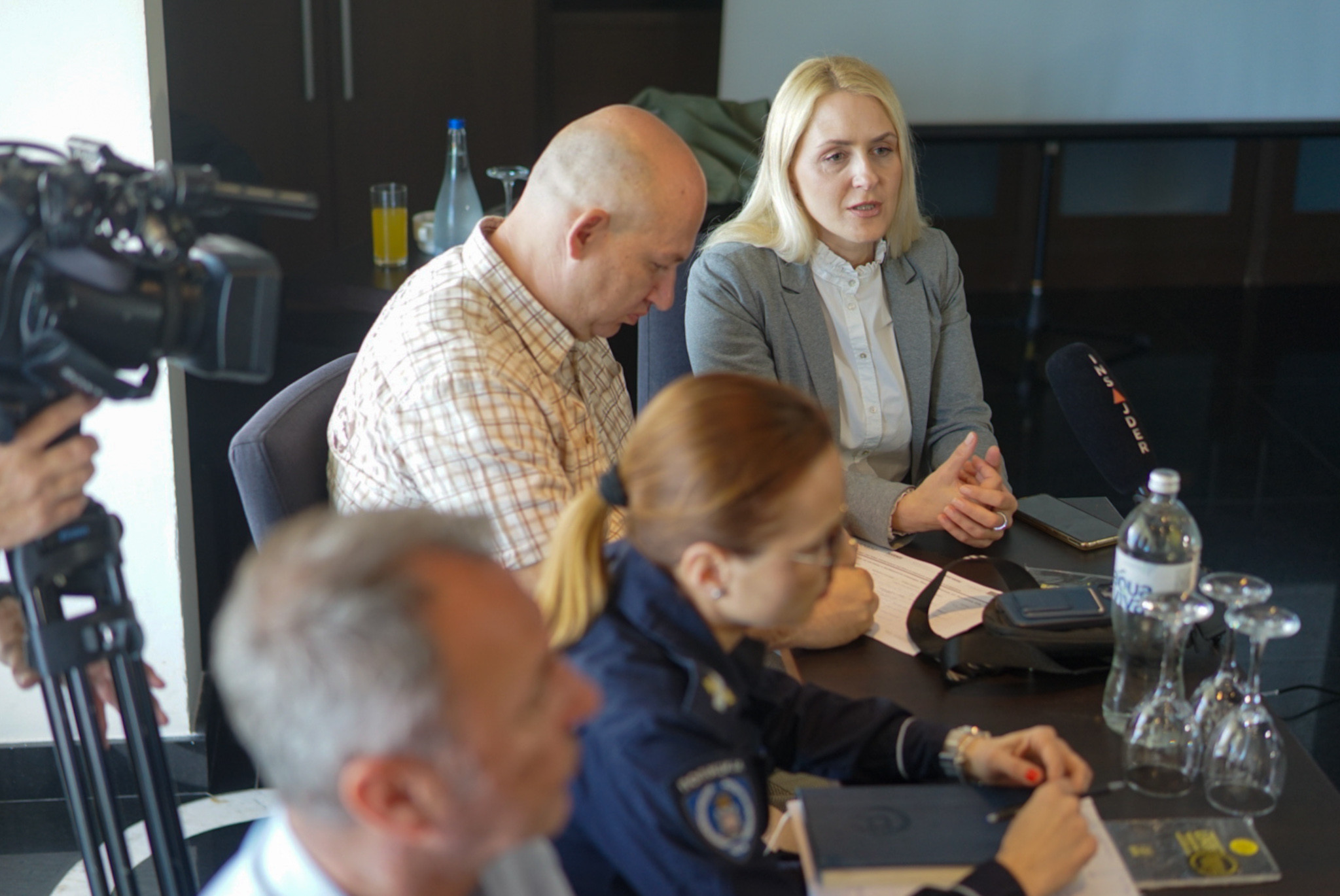
The most drastic case last weekend occurred when journalist Tamara Radovanović from Južne vesti was physically attacked in downtown Niš after both gatherings ended. As seen in the footage published on the Južne vesti portal, the assailant insulted her, twisted her arm, and attempted to snatch her phone, even though around a dozen uniformed police officers were nearby. The police then removed her, but none of them addressed the attacker. Ivana Mitrović, a prosecutor at the Basic Public Prosecutor's Office, stated at the meeting that she acted ex officio after seeing the footage on social media the morning after the incident. She sent a request to the police to identify the perpetrators and to gather more evidence, video footage, or testimonies from people at the scene. She expects, as she stated, a more detailed report from the police so she can proceed with the case.
On the other hand, Dejan Dojčinović, the contact person at the Niš police station, when asked by attendees why the police did not respond in this case and whether this was in accordance with the law, replied that he was not informed about the case and had not seen the footage published in the media and online, thus he could not comment. In response to a question from Marija Babić, a lawyer from the Independent Association of Journalists of Serbia, regarding whether such police behavior was appropriate to the situation—watching the attack and removing the attacked individuals while ignoring the attackers—he said it was “not right to speak hypothetically as he was not on site, and the police act in accordance with legal norms.”
Another journalist experienced an unpleasant incident at the gathering last weekend in Niš. Nikola Doderović from SBS Radio. While filming the gathering, someone pushed his camera away and then questioned him about who he was and for whom he was working.
“Then another man dressed like a thug followed me and my colleague, and we were stopped by six plainclothes police officers who asked for our identification. Since my colleague did not have his documents with him, we were detained. They questioned me about who I worked for, asked for my contract, and inquired how one gets a journalistic ID, if paying 2,000 dinars is sufficient? Interestingly, the police officers at the police station did not understand why we were detained,” recounted Nikola Doderović.
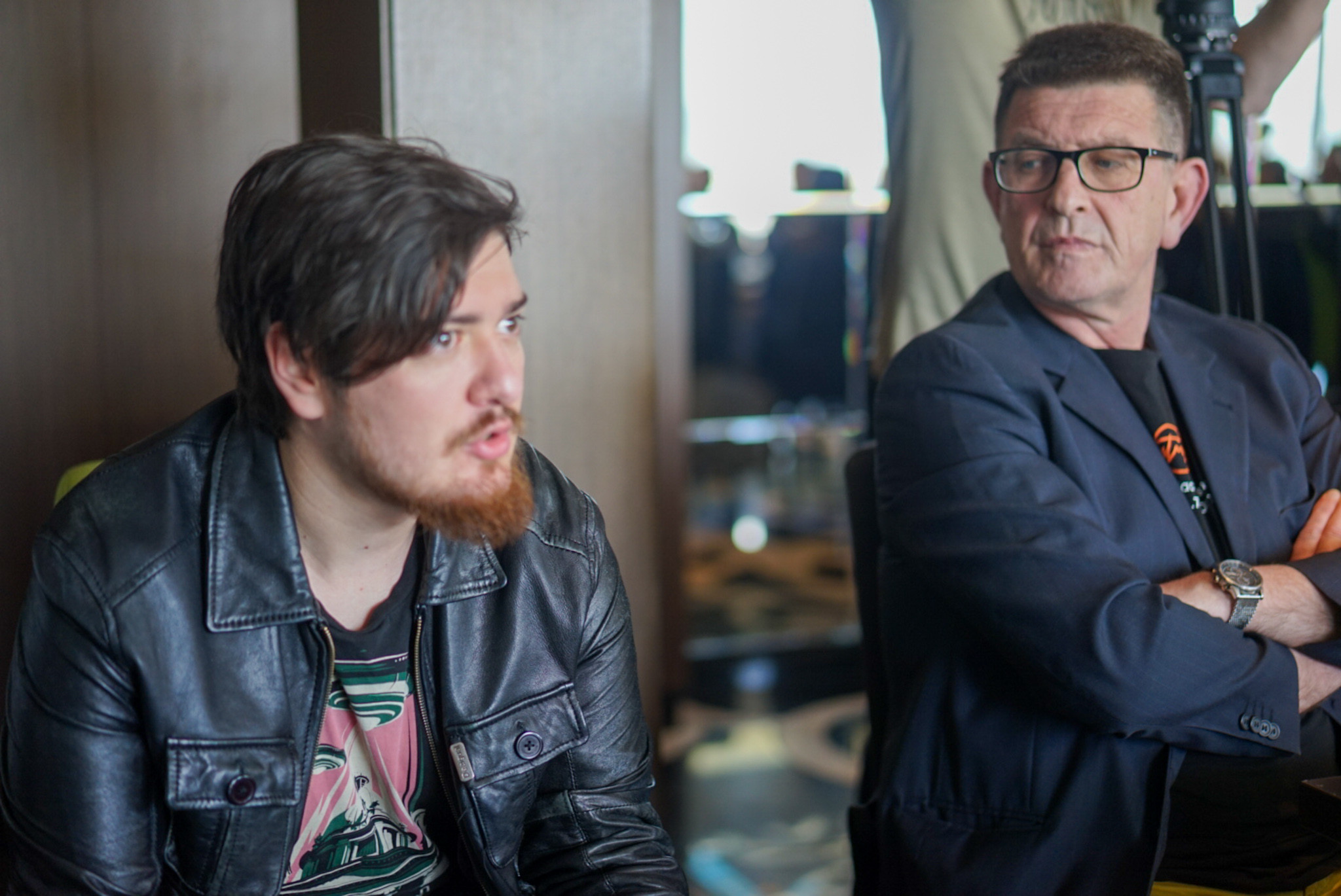
“What happened on Saturday is shocking. The police could have quickly resolved the case of the recorded physical attack on Tamara Radovanović by intervening and detaining the attacker, but now it will drag on, like many others. We have a situation with parapolice, which is obviously partisan and has a significant influence on the police. We need to confront this,” emphasized Veran Matić.
Just when significant changes are happening, journalists are the first to be attacked, leading to slow or complete non-response from institutions and delays in proceedings, highlighted Marija Babić from NUNS.
“I know how the police and the prosecutor's office operate; I understand that they have procedures they must follow. However, their behavior does not inspire confidence and creates fear, not only among journalists but also among citizens. And it is not according to the law. This must change. It is unacceptable for the police not to react when a perpetrator attacks someone.”

Mića Stamenković, a prosecutor at the Appellate Public Prosecutor's Office in Niš, points out that it is not only journalists who are targeted, attacked, and called out, and he calls for the behavior of the police and the prosecutor's office not to be lumped together.
“We are all aware of the chaos we are living in. You constantly hear from the top of the government that prosecutors and judges who do not serve will be dismissed. We are not anyone's servants. We need to function independently,” he specified.
Participants emphasized that it would be beneficial for the prosecutor's office to have more frequent urgencies with the police to ensure cases are processed within the legal timeframe, as in practice, there are increasingly more dismissed rather than prosecuted cases against media representatives.
Solidarity among journalists is necessary, believes Lidija Georgijev from the RTS newsroom in Niš, who was insulted by the president for reporting on student protests.
“From journalistic solidarity, we have reached a point where we target each other, becoming victims of the rhetoric that is being disseminated, breeding ill will, and journalists feel unsafe. The situation is seriously escalating, and we face serious challenges, as this can go on indefinitely,” highlighted Lidija Georgijev.
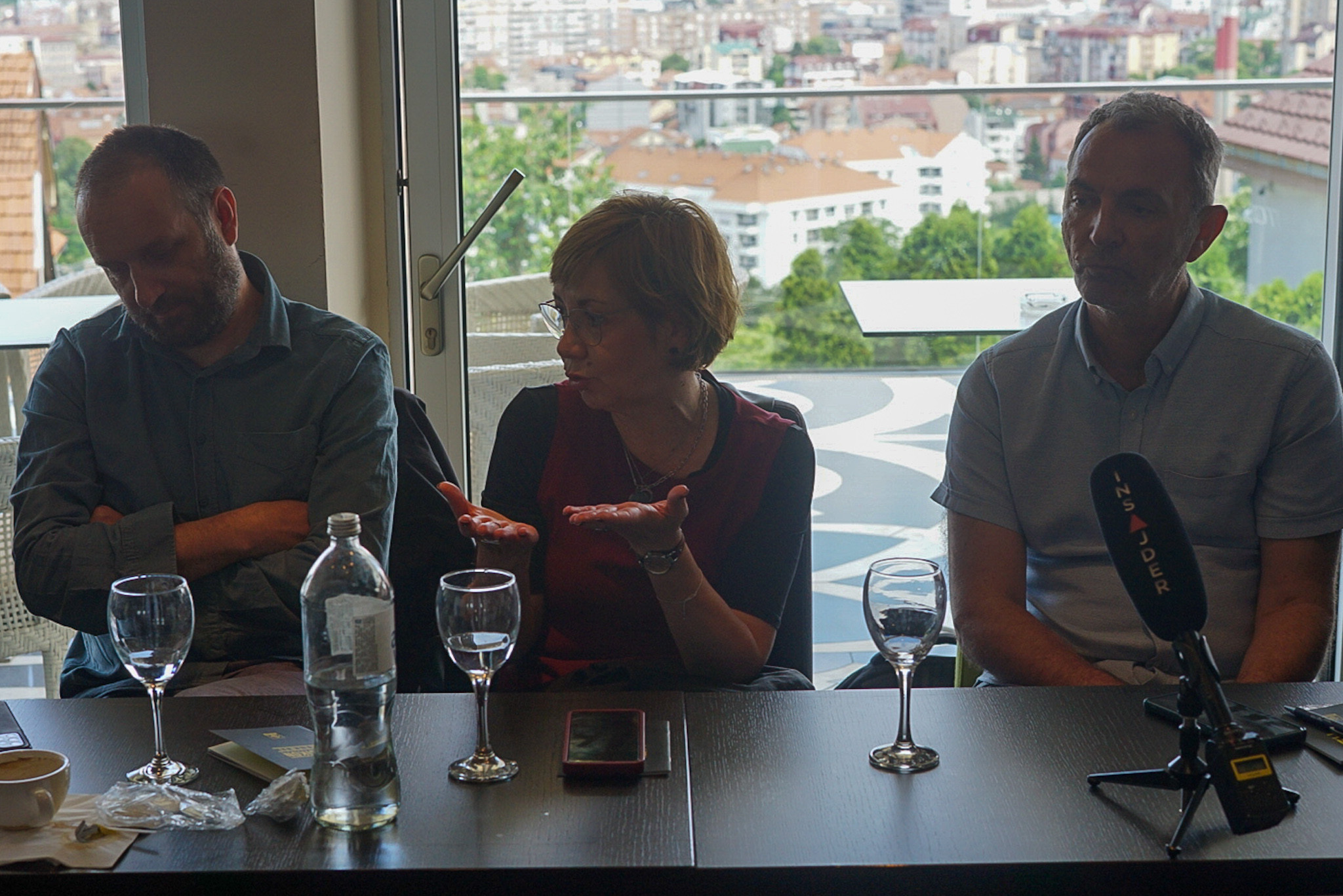
After the meeting, representatives of media associations and the OSCE visited the newsroom of Južne vesti, whose journalist Tamara Radovanović was attacked at the gathering in Niš the previous weekend.
The meeting in Niš was attended by representatives of ANEM, NUNS, UNS, RTS media, SBS Radio, Jugpress, Nova TV, Niška Inicijativa, TV Belami, Niš TV, Beta, and the FAR portal, as well as representatives from the prosecutor's office and the police contact point.
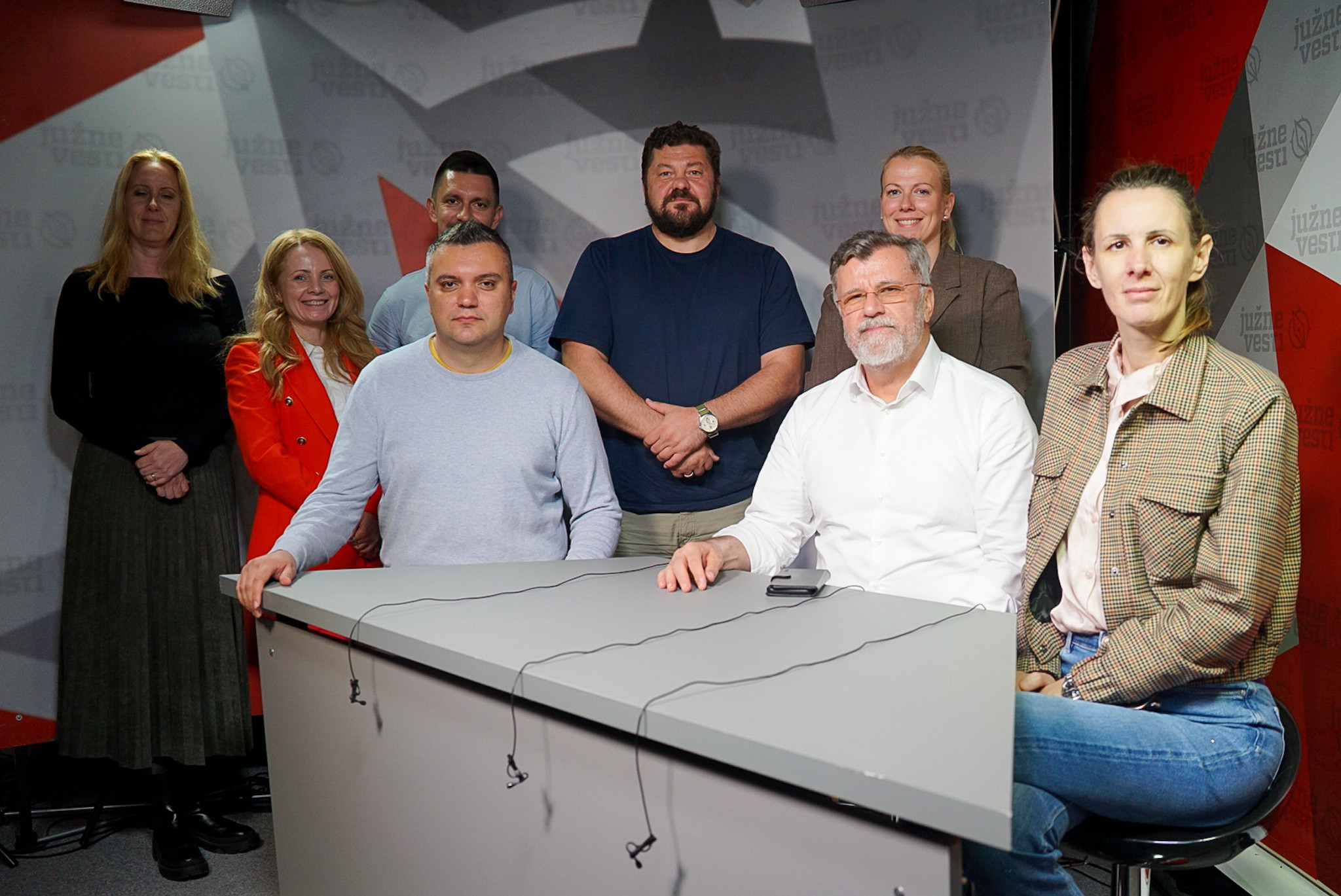
Since 2023, the Permanent Working Group for the Safety of Journalists has visited 18 local communities and met with around 400 journalists, prosecutors, and police officers to discuss ongoing and unresolved cases of threats and attacks on media professionals. Although the work of the working group has been frozen since February of this year, key mechanisms developed through the initiative—such as the contact point system—remain operational.
The project is supported by the European Union and the Balkan Fund for Democracy.
Related Articles

"Protecting Local Media": SRG Meeting Held with Journalists Ahead of Local Elections in Bor on March 29
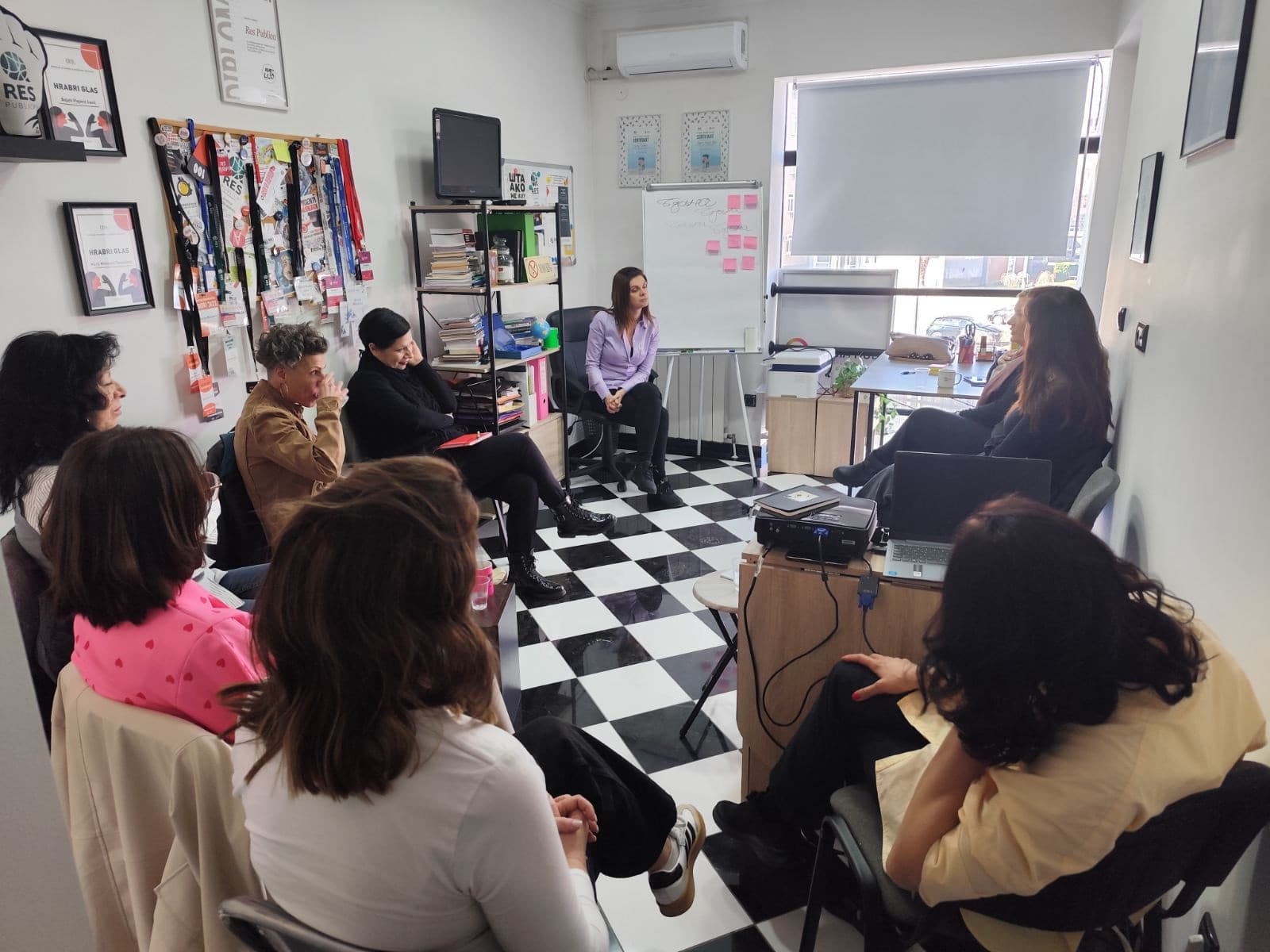
The fourth training for the safety of female journalists and media workers was held in Kragujevac.



%20%C4%86ao%20Nevena%20VERAN%20MATI%C4%86%20Vlast%20%C5%BEeli%20da%20istrebi%20novinare%20-%20YouTube.png&w=3840&q=75)








